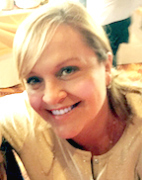 Ivan Kruk/Fotolia
Ivan Kruk/Fotolia
In 1983, I was a 14-year-old girl, deeply depressed and in an abusive home environment. My fellow eighth-grader Tami Hargrove told me, “You should start keeping a journal.” I listened to her, and wrote and wrote.
As it turns out, Tami’s suggestion has been substantiated by science as a way to improve healing and well-being.
In a 2003 study of 36 individuals, half were instructed to write about stressful events in their lives, employing emotional language, i.e., “Expressive Writing,” writing one’s deepest thoughts and feelings about life experiences.
The other half of the participants were asked to write on trivial issues such as time management while avoiding emotional language.
Regarding the participants who wrote about troubling events, study leader Suzanne Scott reported, “A lot of them initially felt quite distressed but also relieved by it [writing about an emotional event]. The theory is that it is releasing a pressure that they have kept in by not previously disclosing it to anyone."
All participants met for three days of writing, for 20 minutes a day, during the first week.
For the second week, the participants were all given punch biopsies in their upper arm. A punch biopsy is a circular blade that ranges in size from 1 mm to 8 mm, which is rotated down through the epidermis and dermis — Yay, science!
Fourteen days later, those who had written about emotionally troubling events had significantly smaller wounds. The same study found a link between high levels of physical and psychological stress and slower wound healing.
A study of older, healthy adults ages 64 - 97 years found similar results. In a randomized, controlled trial, the 49 participants were asked again to write for 20 minutes a day for three days on either emotionally troubling events, or about unemotional daily activities.
Two weeks after writing, these participants received their own round of punch biopsies. Wounds were monitored and photographed daily.
Eleven days later, those who wrote expressively had a greater percentage of fully healed wounds — 76.2 percent, versus only 42.1 percent of those who wrote on time management.
Writing also appears to improve the well-being of cancer patients. Holding expressive writing sessions in chemotherapy clinics has been shown to help patients see cancer as a transformative experience, according to a study reported in The Oncologist. About half the participants reported that writing changed their thoughts concerning their illness.
Those patients who felt the writing was beneficial also showed improvement in their physical quality of life. In addition, according the studies authors in The Oncologist, “... results indicate potentially positive outcomes in terms of relationships among the writing process, writing content, [and] positive changes in thoughts and feelings related to one’s illness....”
Whether you need to sort out unresolved emotional trauma, heal from a minor injury, or face off against cancer, writing about your experiences using emotional language may give you a head start in healing.
Write much and be well.
Sources:
Wounds heal more quickly if patients are relieved of stress. ncbi.nlm.nih.gov. Retrieved September 28, 2015.
http://www.ncbi.nlm.nih.gov/pmc/articles/PMC1150330
Expressive writing and wound healing in older adults: a randomized controlled trial. ncbi.nlm.nih.gov. Retrieved September 28, 2015.
http://www.ncbi.nlm.nih.gov/pubmed/23804013
Implementing an Expressive Writing Study in a Cancer theoncologist.alphamedpress.org. Retrieved September 28, 2015.
http://theoncologist.alphamedpress.org/content/13/2/196.full.pdf+html
Reviewed September 29, 2015
by Michele Blacksberg RN
Edited by Jody Smith






Add a CommentComments
There are no comments yet. Be the first one and get the conversation started!